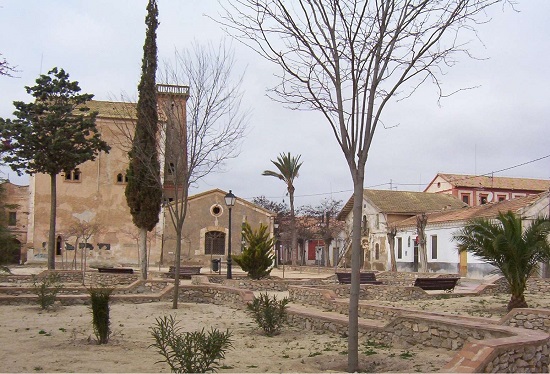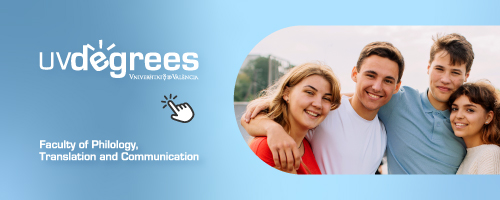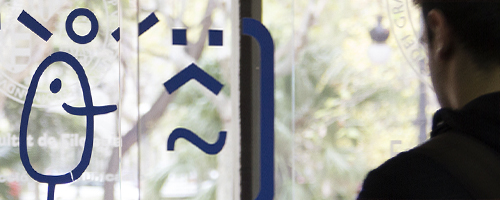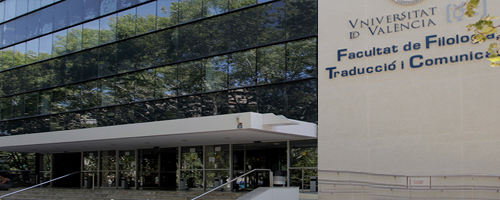
A research done by Àlvar Peris Blanes, professor of Audiovisual Communication of the Universitat de València, highlights that ‘L’alqueria blanca’, televisual fiction broadcasted by RTVV between 2007 and 2013, is related to the Valencian identity rose up in 19th century with the Renaixença. The agrarian and rural scene, the lack of unrests, the bilingualism and the diglossia, update a new speech which feeds specific political and ideological projects.
‘In years of intense debate about the State model, also in national level, these audio-visual stories help to reinforce the official speech which is done by political and media institutions’, indicates the author of the work, the doctor in Audiovisual Communication Àlvar Peris, expert in the representation of national identities on the television. ‘The series is helping to consolidate a Valencian identity which has occupied a consensus place since the autonomic process, whose most relevant consequence has been that the Valencian identity cannot be understood in another way’, explains the researcher.
The article, ‘La identidad valenciana regionalista a través de la ficción televisiva ‘L’Alqueria Blanca’ (Regionalist Valencian identity through the televisual fiction ‘The white Farmhouse’), published in the magazine ‘Arxius de Ciències Socials’, analyses the 13 firsts episodes of the first session of the series broadcasted by Canal 9 since 2077 until 2013. The researcher details this regionalist Valencian model which modulates the series as a vision which has its precedents in the Valencian Renaixença, which was assumed and spread by the intellectuals of the moment, which was not question by the Francoism, and which has ended as a model shared by the social majority since the Transcition.
The televisual fiction is about personal and professional relationships of the inhabitants of an inland Valencian town, half way between Valencia and Alicante, during 60s of last century. Two fought families, Falcó and Pedreguer, with different social and economical status, will be the main characters of this story. Conceived as a season series with one telecast per week in prime time, the using of melodramatic resources like in soap operas or serials are one of the most identifiable characteristics. In fact, the passion, the jealously, the envies or the familiar fights are some of the motors of the plot.
Àlvar Peris explains that in ‘L’alqueria blanca’, the rural world, the town, is shown as an environment with lots of positive values, with a high security, traditional, that despite it has suffered some changes, solidary and close, friendly and, above all, recognised to a wide part of the society, whose past can be dated back to rurals spaces like the represented one. Opposite, the city is dangerous or destabilizing. This dichotomy field/city has its origin in the height that agriculture has still in the Valencian imaginary and in the configuration of the regionalist Valencian identity of the Renaixença, according the researcher. This vision widespread by intellectuals in the Valencian lands, confronted harmony hierarchy and lands relations and a conservative vison; with the city, where the conflict happened.
Transition consensus spirit
‘The memory game which is displayed at the screen immerse the spectator in a consensus about how they were and, even most important, how Valencian are, fact that allows you to connect with the past, the present and the future’, points Àlvar Peris. Moreover, ’in the fiction is sensed a consensus and reconciliation spirit, one of the pillars of the memory system of the Spanish Transition, considered by lot of people, the founding period of the constitutional present and that is present in numerous recent Spanish historical fictions’. The researcher mentions this way ‘Cuéntame cómo pasó’, and telefilms, like ‘Adolfo Suárez, el Presidente’ (Antena 3, year 2010) or ‘Tarancón, el quinto mandamiento’ (TVE, 2011).
Bilingualism, Valencian subordinate position and pedagogical function
The doctor in Audiovisual Communication details that the Valencian is the working language of ‘L’alqueria blanca’, but ‘the series reflects how the Valencian occupies the imaginary of a subordinate collective, suitable to the broadside or the harsh remark and, in general, for the comedy’. In the one-act farces of the 19th century which form the regionalist Valencian identity, the Valencian appears as a language full of clichés. When Spanish-speakers characters coincide and they speak in Valencian, the communication language will always be Spanish; and the Valencian is the language of the popular classes, while the Spanish is the one chosen by the richest.
‘The fact the the series was mostly in Valencian and had a large following broke the taboo, in the way that everyone though that a fiction in this language could create rejection in spectators.’, points Peris. The researcher sees in the fiction a consensus around the Valencian as an element of the regionalist identity and other identities, and even ‘L’alqueria blanca’ has a pedagogical function ‘unquestionable’ regarding lexicon, verbal conjugation and the recovery and normalisation of words which refer to disuse products or of the life in lands.
Differences with ‘Cuéntame cómo pasó’
The professor of the Universitat de València identifies the series ‘L’alqueria blanca’, produced by the company Trivisión, as a historical fiction which shares numerous elements with ‘Cuéntame cómo pasó’ (TVE, since 2001). In both exists a memoir story which, located in Francoism, progresses in time. So, the series of TVE arrives to episodes set in democratic period, while the Valencian production has less historical density. Despite is shows some aspects of the transformations of the moment, it is focused on the rural daily life in 60s and it just shows social problems.
The features of this model of identity are represented through the audio-visual story of ‘L’alqueria blanca’, where ‘there aren’t Valencian behaviours, but cultural references which can work in a national level’ explains the article. Also, this lack of historical density of the series forces to direct the spaces view at homes, so there is a great importance of genre scenes, like meeting in the bar, the mass, the shops or the game of dominoes, which obtained a high identification of the public.
Update of the regionalist speech and identity space
The median follow-up of around 200 episodes was well above the median of the channel, specially last years, when the median audience of Canal 9 was sunk. In fact, the study of Àlvar Peris is one of the first academic works about one of the most important series of the Valencian televisual fiction.
The location of the series between Valencia and Alicante causes that with the rivalry between both cityes and provinces, the series doesn’t take one sides or the other. ‘L’alqueria Blanca’ adds t the Valencian collective imaginary aa new identity space: the agricultural community of Santa Eulalia, located between Sax and Villena, and contributes to lead the Valencian cultural centralism of the Romantics regionalism. This took the city of Valencia and its vegetable gardens, beaches and the Albufera as elements with a high symbolic significance, popularized by artists and intellectuals, like the painter Joaquín Sorolla, the narrator Vicente Blasco Ibáñez, the dramatists Bernat i Baldoví and Escalante, or the poet Teodor Llorente, among others.
Representation of the national identity in television
Professor of Audiovisual Communication in the Universitat de València since 2002, Àlvar Peris has focused interest on the study of the contents and audio-visual formats, in their multiple facets, and the relationship between identity and media. He is doctor since February 2016 with a study about the representation of the national identity in television.
Àlvar Peris has published numerous scientific works in academic magazines, monographies and collective books about Communication, Cultural studies and History. He has worked as a visiting lecturer in Duke University (United States) and in the University of Nottingham (United Kingdom). He has been collaborator of the literary magazines ‘Caràcters’ and ‘Lletres Valencianes’, and has coordinated for two years the courses of script for television organised by the Foundation for the Audio-visual Research (FIA/UIMP, Valencia). He has work as journalist in Radio9 too, the Valencian public radio.
Article:
Àlvar Peris Blanes: ‘La identidad valenciana regionalista a través de la ficción televisiva ‘L’Alqueria Blanca’’. Arxius de Ciències Socials, número 32, pp 225-240, juny 2015. ISSN: 1137-7038
Images:

















